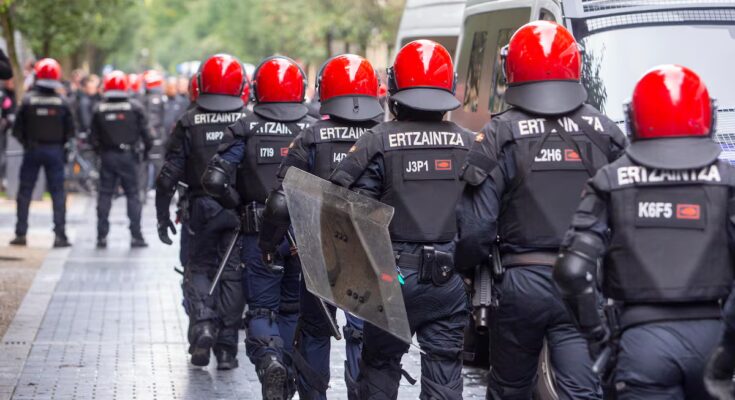The Ertzaintza modified a criterion that it had maintained for decades and began to specify in its information notes the origin of the perpetrators of specific crimes, distinguishing between Spaniards and foreigners; and classifying the latter by different geographical areas. The Basque government and the PNV, which controls the Ministry of Security, defended the decision for reasons of transparency and to combat hoaxes and the spread of distorted data, directly criticizing both the PP and Vox.
In a society like today’s – hyper-connected and information-saturated but mature – any initiative that serves to dismantle the far-right narrative linking immigration and crime – something the numbers repeatedly deny – must be welcomed, but also rigorously analysed. Ultra discourse has grown, among other reasons, due to immobility, excessive paternalism, and a lack of pedagogy from democratic institutions regarding the benefits and challenges that immigration brings. Precisely for this reason, they must now be very careful so that the information provided does not contribute to perpetuating what is intended to fight and ends up stigmatizing entire groups, reinforcing racist and xenophobic stereotypes.
There is no police or security reason that justifies the decision taken by the Basque government. For years, in fact, the Interior Ministry has maintained statistics that even disaggregate prisoners and suspects by nationality. The reason, according to the Ertzaintza, is the fight for the truth in a context where data is manipulated to justify the hardening of anti-immigration discourses. It is on the basis of this purpose that the effectiveness of the measure must be assessed.
More than 9.8 million people living in Spain were born abroad, of which 7.1 million maintain their nationality of origin. Increasing immigration in recent years has not only made Spain more diverse, but also richer. Current macroeconomic prosperity is inseparable from their contribution. Despite the greater number of foreigners, the crime rate, measured in crimes per thousand inhabitants, has been decreasing over the last decade until it stands today – excluding cybercrime – at 40.6 crimes per thousand inhabitants, in the lowest range of the historical series and one of the lowest in the world, according to Interni.
Crimes have no nationality, race or religion. There are no cultures particularly prone to committing them. Behind every racist and xenophobic accusation lies an economic issue, a problem of poverty and exclusion. Social cohesion can only go hand in hand with a determined commitment to the public pillars of the increasingly neglected welfare state (education, healthcare, assistance and social security). Understanding their importance and equipping them accordingly to respond to a society with evolving needs would serve to prevent potential conflicts. Maintaining security, without which there is no freedom, is one of the responsibilities of administrations. Not guaranteeing it affects both the quality of life of citizens and the quality of democracy itself. But strengthening it does not only mean improving the police response – or information – but also avoiding the abandonment of social services. If Spain does not want anti-politics to poison its coexistence, it must be a dignified and orderly, welcoming society, and not a society that pits vulnerable citizens against equally vulnerable foreigners.



